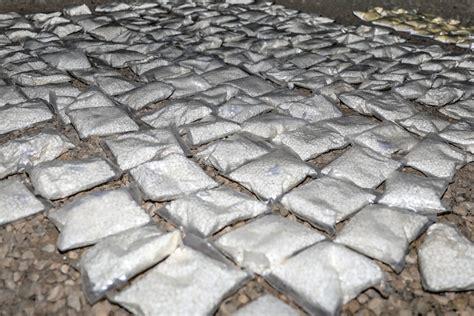
Europe is main transit route for Assad’s captagon trafficking to Middle East, report reveals
Europe has become the primary transit route for captagon tablets on their way to the Middle East, as the Syrian regime of Bashar al-Assad and its affiliates continue to produce and export the narcotic.
According to a report by the European Monitoring Centre for Drugs and Drug Addiction (EMCDDA) and Germany’s Criminal Police Office, Europe is now a key route for the trafficking of the captagon amphetamine drug.
After being manufactured in Syria and Lebanon, the captagon is reportedly either directly rerouted through the European Union (EU) or its deliveries are repackaged and forwarded within the bloc.
Citing information provided by seven European countries, the report reveals that although actual consumption of the drug in the continent is low, the transit of tablets through its territory is taking place on a much larger scale.
Facilities for captagon production even exist within Europe, according to the report, with a primary location being the Netherlands where one or two large-scale production sites are reportedly discovered annually.
The report does not implicate any direct involvement of European criminal networks in the drug’s production and export, Syrian investigative journalist Taim Alhajj stated in it that “organised gangs in European countries work in coordination with the Assad family”. He added that “Drugs are the key to a large door of crime in any society, let alone in a country like Syria that lives in a state of security chaos”.
Although captagon use spiked significantly throughout the ongoing 12-year-long Syrian civil war, it became particularly infamous since 2020, when 84 million pills were discovered in Italy in the largest ever amphetamine trafficking bust at the time. Tens of millions of more tablets have since been captured in other countries throughout Europe, North Africa, and the Arabian Peninsula, with Saudi Arabia and the Gulf region being the primary destination for the narcotic.
It was first thought by many that the terror group Daesh was responsible for captagon’s production and exports, but it was discovered soon amid the emergence of the international trafficking busts that Syria’s Assad regime and the militias allied with it are the responsible parties, utilising the drug trade in order to circumvent international sanctions.
The role of criminal networks and front or shell companies in the trafficking operations and other business endeavours on behalf of the Assad regime have been revealed in recent years, but this latest report particularly sheds new light on the role of Europe as a key transit route for the drugs, and further reveals the presence of a potentially vast network of regime proxies and allied militants within the continent.
Source » middleeastmonitor.com





